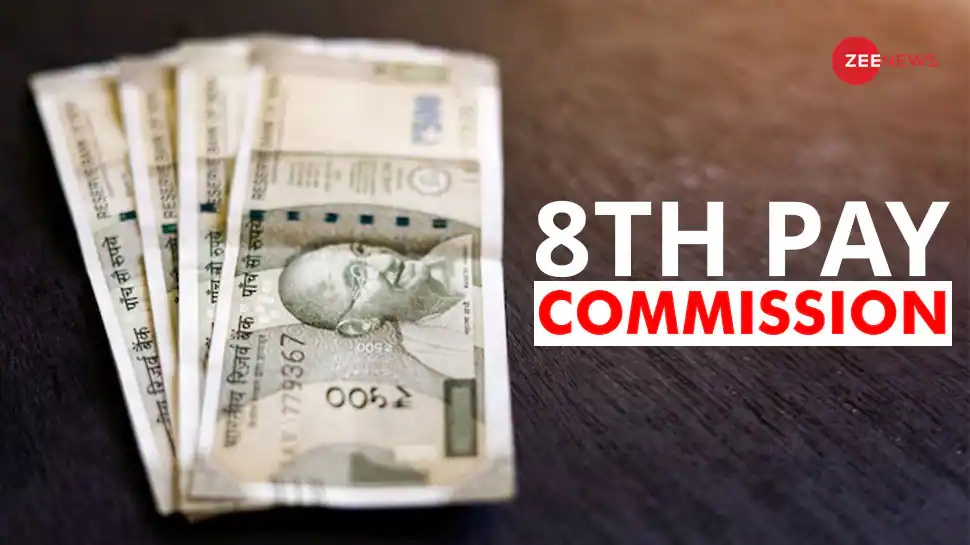
Overview of the 8th Pay Commission and Its Significance
The 8th Pay Commission, a critical initiative for revising remuneration for central government employees and pensioners, is poised to reshape salary structures after the 7th Pay Commission’s 2016 reforms. With the 7th Commission’s tenure set to expire in 2026, the government faces mounting pressure to address stagnant wage growth and inflationary pressures. Over 1.2 crore central government employees and pensioners await the 8th Commission’s recommendations, which promise to balance salary hikes with fiscal constraints. The commission’s role extends beyond mere financial adjustments, aiming to ensure equitable compensation amid rising living costs and evolving economic conditions. This overhaul is expected to redefine the pay scale, allowances, and pension frameworks, setting a precedent for future wage negotiations.
Projected Salary Increases and Fitment Factor Adjustments
Analysts anticipate a modest yet significant salary increase under the 8th Pay Commission, with estimates suggesting an effective hike of 13% compared to the 14.3% under the 7th Commission. This projection, highlighted by Kotak Institutional Equities, reflects a strategic approach to mitigate inflation while preserving fiscal discipline. The fitment factor, a crucial determinant of salary adjustments, is expected to be set at 1.8%, a marked reduction from the 2.7% under the 7th Commission. This lower factor underscores the government’s emphasis on controlled growth, balancing employee expectations with budgetary limits. The 7th Commission’s 2016 reforms, which marked the lowest pay raise since 1970, now serve as a benchmark for the upcoming adjustments, highlighting the complex interplay between economic realities and administrative priorities.
Dearness Allowance and Its Role in Effective Pay Hikes
A key aspect of the 8th Pay Commission’s recommendations involves the restructuring of dearness allowance (DA), which currently stands at 55%. The DA, a critical component of employee compensation, is set to be reset to zero under the new framework, potentially altering the effective pay hike. While a 1.8% fitment factor would theoretically result in an 80% increase in basic pay, the DA’s elimination could temper the overall impact, leading to a net 13% effective raise. This adjustment highlights the commission’s focus on recalibrating benefits to align with inflationary trends, ensuring that employees receive adequate compensation without straining the exchequer. The DA’s reset underscores the government’s effort to streamline allowances while maintaining fiscal responsibility.
Government’s Response to Terms of Reference and Application Delays
The government has addressed concerns regarding the Terms of Reference (ToR) for the 8th Pay Commission, acknowledging stakeholder input from bodies like the National Council of Joint Consultative Machinery (NC-JCM). This consultation process, involving key ministries and states, aims to ensure the commission’s recommendations are comprehensive and inclusive. However, delays in finalizing the ToR have sparked speculation and uncertainty among employees, with fears of procedural opacity. Meanwhile, the Department of Personnel & Training has extended the application deadline for key posts to July 31, 2025, indicating ongoing challenges in securing qualified candidates. These delays highlight the bureaucratic complexities of implementing large-scale reforms, emphasizing the need for transparent communication and stakeholder engagement.
Challenges and Implications of the 8th Pay Commission’s Timeline
The prolonged timeline for the 8th Pay Commission has intensified anxieties among central government employees and pensioners, who seek clarity on compensation adjustments. The absence of definitive timelines and communication has fueled doubts about the commission’s credibility, with some questioning its administrative intent. This uncertainty underscores the broader challenges of balancing fiscal prudence with employee welfare in public sector reforms. As the government navigates these complexities, the 8th Pay Commission’s success will hinge on its ability to address these concerns while delivering sustainable solutions. The upcoming recommendations are poised to set a new benchmark for wage negotiations, with far-reaching implications for both employees and the broader economy.




